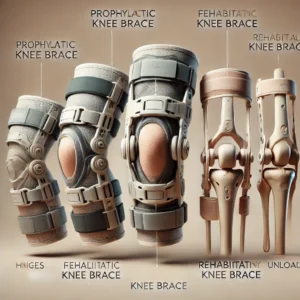Shooting News: A Deep Dive into Current Events and Their Impact

In recent years, the frequency of shooting incidents reported in the news has become a grave concern worldwide. Whether these events occur in schools, workplaces, or public spaces, they have far-reaching consequences that extend beyond the immediate victims. This article delves into the complexities surrounding shooting news, exploring the causes, the impact on communities, and the ongoing debate over gun control and public safety.
The Rise in Shooting Incidents
The frequency of shootings, particularly in the United States, has increased alarmingly. According to recent data, mass shootings have become almost a daily occurrence in some regions. This rise has sparked a global conversation about the underlying factors contributing to such violence. Several reasons are often cited, including the availability of firearms, mental health issues, societal pressures, and the influence
of violent media.
The availability of firearms, especially in countries with lenient gun laws, is frequently pointed to as a primary factor. In the U.S., for example, the ease with which individuals can acquire guns has been linked to the high number of shootings. Additionally, mental health issues are often highlighted in shooting news, with calls for better mental health care and more robust systems to identify and help those at risk.
Impact on Communities
The impact of shootings on communities is profound and multi-faceted. Immediately following an incident, there is the obvious human toll—loss of life, injuries, and the trauma experienced by survivors and witnesses. However, the effects extend much further, influencing the psychological well-being of entire communities and altering their sense of safety.
In the aftermath of a shooting, communities often experience a surge in fear and anxiety. Public spaces that were once considered safe—schools, churches, shopping malls—are suddenly viewed as potential targets. This shift in perception can lead to decreased public engagement, with people avoiding social gatherings or altering their routines to feel safer.
Moreover, the economic impact of shootings can be substantial. Businesses in the affected areas may suffer from reduced foot traffic, and property values can decline. The cost of emergency response, medical care, and long-term psychological support also places a significant burden on local resources.
The Media’s Role in Shooting News

The media plays a critical role in how shooting news is reported and perceived. While the primary role of the media is to inform the public, the manner in which shootings are covered can influence public opinion and policy debates. Sensationalist reporting, for instance, can create a sense of panic and urgency, sometimes overshadowing the underlying issues that need addressing.
On the other hand, in-depth reporting can help uncover the root causes of shootings, offering a more nuanced view of the situation. Investigative journalism can bring to light systemic issues such as gaps in mental health care, the influence of extremist ideologies, or the effects of social isolation.
The media also has the responsibility to respect the privacy and dignity of victims and their families. Unfortunately, in the rush to cover breaking news, this aspect is sometimes neglected, leading to further trauma for those involved.
The Debate Over Gun Control

Shooting news invariably reignites the debate over gun control. Advocates for stricter gun laws argue that limiting access to firearms, especially assault weapons, could reduce the number of shootings. They point to other countries with strict gun laws and significantly lower rates of gun violence as models for reform.
Opponents of stricter gun control, however, argue that the right to bear arms is a fundamental freedom, particularly in the United States, where it is enshrined in the Constitution. They contend that focusing on gun ownership does not address the root causes of violence, such as poverty, inequality, and lack of access to mental health care.
Despite the deep divisions in this debate, there is some common ground. Both sides generally agree on the need for more comprehensive background checks and better systems for tracking and preventing the sale of firearms to individuals with a history of violence or mental illness.
Conclusion
Shooting news is a complex and multifaceted issue that continues to dominate headlines and spark intense debate. The rise in shooting incidents has had a profound impact on communities, shaping public perceptions and influencing policy discussions on gun control. As we continue to grapple with the causes and consequences of these tragedies, it is crucial to approach the issue with a balanced perspective—one that considers the rights of individuals while prioritizing the safety and well-being of the broader community.
Moving forward, it is essential to foster open dialogue and seek solutions that address both the symptoms and root causes of gun violence. By doing so, we can hope to reduce the frequency of such tragedies and create a safer, more secure society for everyone.













Post Comment